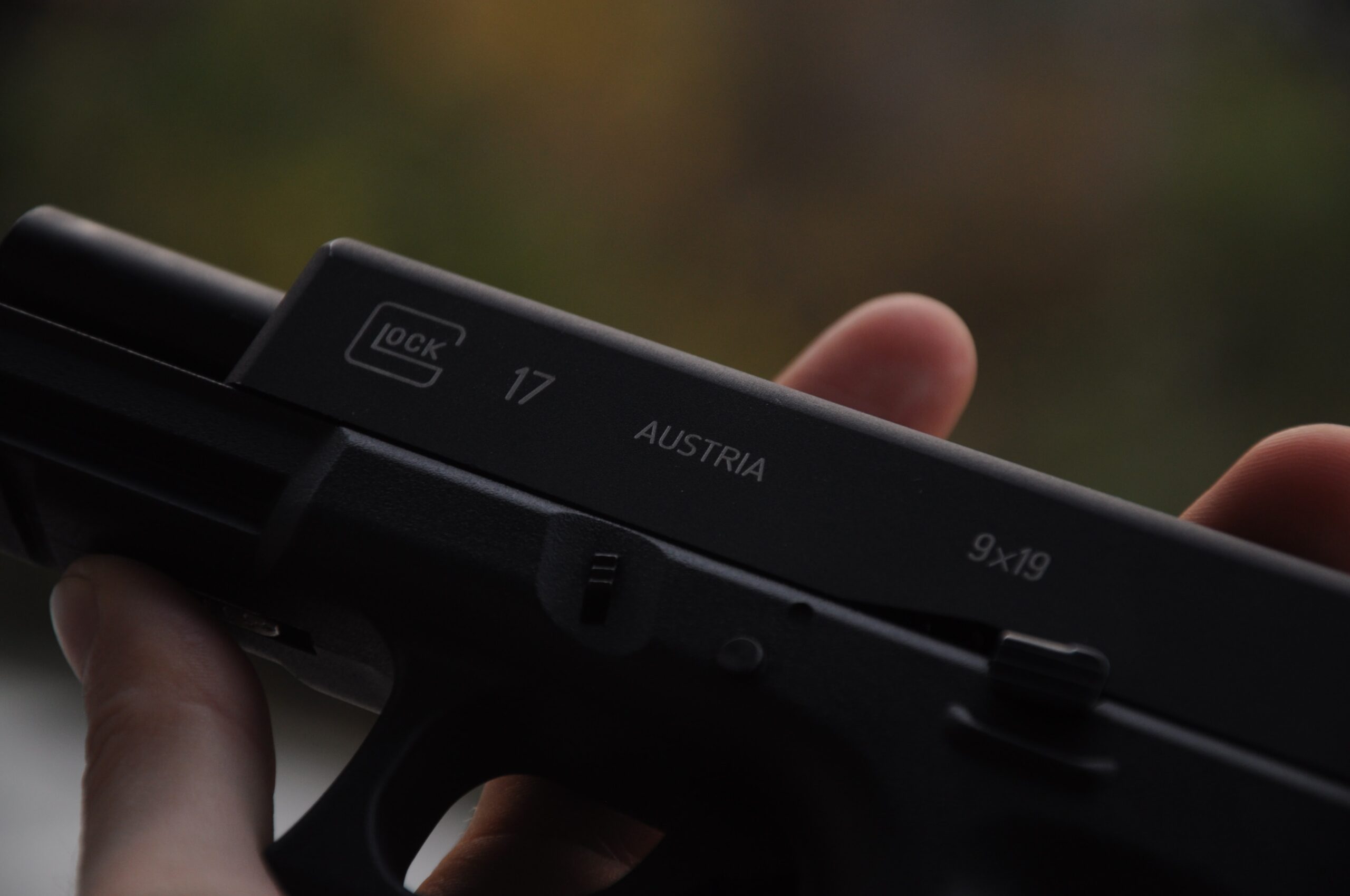Indiana Constitutional Carry FAQ

INDIANA CONSTITUTIONAL CARRY FREQUENTLY ASKED QUESTIONS
Effective as of July 1, 2022
To carry under Indiana Constitutional Carry, a person:
-Must be 18 years of age or older.
-Must not be prohibited from possessing and carrying a handgun under Indiana law.
-Must not be prohibited from possessing and carrying a firearm under federal law.
Indiana Constitutional Carry applies to all handguns.
You may carry a handgun either openly or concealed on or about your person. You may also carry your handgun on or about your person in your vehicle.
The following places are generally prohibited to a person carrying a handgun under the authority of Indiana Constitutional Carry. This includes:
- School property, in or on property that is being used by a school for a school function, or on a school bus;
- The property of a child caring institution, an emergency shelter care child caring institution, a private secure facility, a group home, and an emergency shelter care group home;
- The property of a penal or juvenile facility;
- Property belonging to an approved postsecondary educational institution;
- Domestic violence shelters;
- Property owned, operated, controlled, or used by an entity that: (1) is required to conduct a vulnerability assessment; and develop and implement a site security plan, under the United States Department of Homeland Security’s Chemical Facility Anti-Terrorism Standards issued April 9, 2007; or (2) is required to have a security plan under the Maritime Transportation Security Act of 2002, Public Law 107-295;
- Controlled access areas of an airport and on commercial or charter aircraft;
- State fairgrounds (unless firearm is secured in a locked compartment of the vehicle, and not visible to passersby);
- Indiana State Government Center Campus and Indiana Department of Workforce Development offices;
- Shipping ports and port property controlled by the Indiana Port Commission;
- Casinos and racetracks;
- Buildings containing courtrooms; and
- Places or manner that are otherwise in violation of federal law.
Prohibited conduct under Indiana Constitutional Carry includes, but may not be limited to:
-Pointing a firearm without legal justification
-Criminal recklessness with a firearm
-Intimidation with a firearm without legal justification
- School property, in or on property that is being used by a school for a school function, or on a school bus;
- The property of a child caring institution, an emergency shelter care child caring institution, a private secure facility, a group home, and an emergency shelter care group home;
- The property of a penal or juvenile facility;
- Property belonging to an approved postsecondary educational institution;
- Domestic violence shelters;
- Property owned, operated, controlled, or used by an entity that: (1) is required to conduct a vulnerability assessment; and develop and implement a site security plan, under the United States Department of Homeland Security’s Chemical Facility Anti-Terrorism Standards issued April 9, 2007; or (2) is required to have a security plan under the Maritime Transportation Security Act of 2002, Public Law 107-295;
- Controlled access areas of an airport and on commercial or charter aircraft;
- State fairgrounds (unless firearm is secured in a locked compartment of the vehicle, and not visible to passersby);
- Indiana State Government Center Campus and Indiana Department of Workforce Development offices;
- Shipping ports and port property controlled by the Indiana Port Commission;
- Casinos and racetracks;
- Buildings containing courtrooms; and
- Places or manner that are otherwise in violation of federal law.
You must be 18 years of age or older. I.C. 35-47-2-3(a) (effective July 1, 2022). You must not be otherwise prohibited under Indiana law from possessing or carrying a handgun. See I.C. 35-47-2-1(2)-(3) (effective July 1, 2022).
The following people are prohibited from carrying:
- A person convicted of a federal or state offense punishable by a term of imprisonment exceeding one (1) year.
- A fugitive from justice.
- An alien.
- A person convicted of a crime of domestic violence (under I.C. 35-31.5-2-78), domestic battery (under I.C. 35-42-2-1.3), or criminal stalking (under I.C. 35- 45-10-5).
- A person restrained by an order of protection issued under I.C. 34-26-5.
- A person under indictment.
- A person who has been adjudicated dangerous under I.C. 35-47-14-6, adjudicated a mental defective, or committed to a mental institution (see page 19 for definition of “dangerous”).
- A person dishonorably discharged from military service or the National Guard.
- A person who renounces their United States citizenship in the manner described in 8 U.S.C. 1481.
- Felons: A person convicted of a crime punishable by imprisonment for a term exceeding one year. See 18 U.S.C. 922(g)(1).
- Fugitives from Justice: A person who has fled from any State to avoid prosecution for a crime or to avoid giving testimony in any criminal proceeding. See 18 U.S.C. 922(g)(2).
- Addicts: A person who is an unlawful user of or addicted to any controlled substance. See 18 U.S.C. 922(g)(3). The U.S. government considers marijuana to be a controlled substance. This is true even when used by individuals who reside in a state that has legalized marijuana for medical or recreational use.
- Mental Defectives: A person who has been adjudicated as a mental defective or who has been committed to a mental institution. See 18 U.S.C. 922(g)(4). Adjudication is an order rendered by a court, board, or other lawful authority which adheres to the principles of due process, which includes notice and an opportunity to be heard.
- Illegal Alien or Non-Exempt Nonimmigrant Aliens: An alien who is illegally or unlawfully in the United States or has been admitted to the United States under a nonimmigrant visa and does not meet an exception under 18 U.S.C. 922(y)(2). See 18 U.S.C. 922(g)(5).
- Dishonorably Discharged: A person who has been discharged from the Armed Forces under dishonorable conditions. See 18 U.S.C. 922(g)(6).
- Renounced Citizenship: A person who has renounced his or her United States citizenship. See 18 U.S.C. 922(g)(7).
- Under Certain Protective Orders: A person who is subject to an explicit court order restraining them from harassing, stalking, or threatening an intimate partner or child of the intimate partner or engaging in other conduct that would place an intimate partner in reasonable fear of bodily injury to the partner or child. See 18 U.S.C. 922(g)(8).
- Domestic Abusers: A person who has been convicted of a misdemeanor crime of domestic violence. See 18 U.S.C. 922(g)(9).
- A person who is less than eighteen (18) years of age; or twenty-three (23) years of age and has an adjudication as a delinquent child for an act described by I.C. 35-47-4-5.
Under Indiana law, “firearm” means any weapon that is capable of expelling, designed to expel, or that may readily be converted to expel a projectile by means of an explosion. I.C. 35-47-1-5. Indiana law then defines “handgun” as any firearm designed or adapted so as to be aimed and fired from one hand, regardless of barrel length; or a firearm with a barrel less than sixteen (16) inches in length or an overall length of less than twenty-six (26) inches. I.C. 35-47-1-6.
Signs hold no force of law in Indiana. Signs may be present in places both prohibited under state and federal law or be posted at the wishes of the property owner. However, the crime of criminal trespass may be applicable wherever the owner or manager of private property requests that you leave the property or remove your firearm. You may be trespassing if you do not comply with the request, posted or not.
In Indiana, police officers have broad authority, including to arrest and/or retain suspects in custody who have violated statues in view of the officers. See I.C. 36-8-3-6, 10-11-2-21. Generally, however, police officers are prohibited from using the fact that an individual is carrying a firearm as a reason to support their suspicion that a person is participating in criminal activity or that they are dangerous. Pinner v. State, 59 N.E.3d 275 (Ind. Ct. App. 2016).
The law requires articulable facts, other than the fact that the person possesses a firearm, of criminal behavior or that a crime has either been committed or is about to be committed. See Lampkins v. State, 682 N.E.2d 1268 (Ind. 1997). Indiana courts have held that to disarm an individual based solely on the fact that the individual possesses a firearm is a violation of that person’s Fourth Amendment right to be free from unreasonable searches and seizures. See Malone v. State, 882 N.E.2d 784 (Ind. Ct. App. 2008).
Many states still require a resident license to carry while traveling. Carrying a handgun for self-defense while traveling to other states is of primary importance to many people. Though some states have constitutional carry, many other states require an Indiana LTCH to carry within their borders. If you want to lawfully carry your handgun in the following states, you will be required to have a recognized permit: Colorado, Florida, Louisiana, Michigan, North Carolina, North Dakota, Pennsylvania, Virginia, and Wisconsin.
The law requires articulable facts, other than the fact that the person possesses a firearm, of criminal behavior or that a crime has either been committed or is about to be committed. See Lampkins v. State, 682 N.E.2d 1268 (Ind. 1997). Indiana courts have held that to disarm an individual based solely on the fact that the individual possesses a firearm is a violation of that person’s Fourth Amendment right to be free from unreasonable searches and seizures. See Malone v. State, 882 N.E.2d 784 (Ind. Ct. App. 2008).

Marc Halata
Attorney At Law
